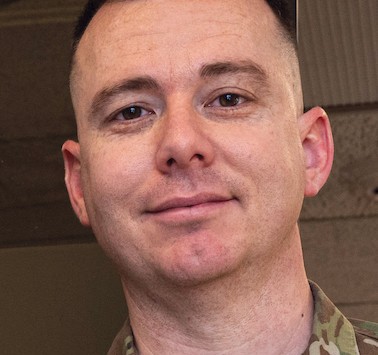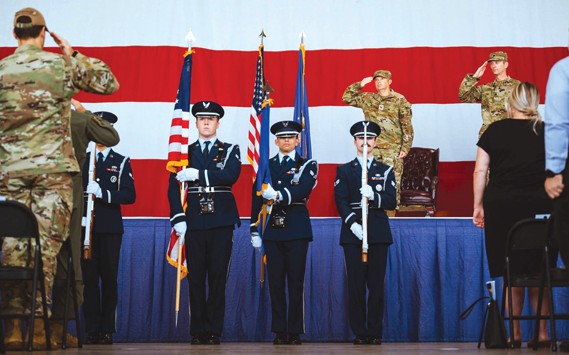Editor’s note: This commentary was first published on Feb. 11, 2013.
SOUTHWEST ASIA – At home, I can barely get him to buy me a $5 bouquet of wildflowers from the grocery store, but now that I am deployed, he goes all out with hidden notes in care packages, daily emails and nightly text messages wishing me sweet dreams and expressing his love.
My husband has learned in order to keep our flame alive, we’re going to have to give a little more and work a little harder than normal.
The joys of a military-to-military marriage are a blessing but, the other side is separations that are, at times, long and taxing on a marriage.
For us, our first separation was an extreme one. My husband and I spent 25 days together during our first 13 months of marriage. This time apart taught us how important it is to find ways to keep our flame alive.
One of the most difficult long-distance relationship stresses is due to emotional needs not being met. When we are together, a look, a touch or even enjoying daily routines together satisfies those needs, but when we’re apart it’s often more difficult to feel the special bond we share that makes our relationship so special.
Sometimes, a love letter from our significant other is all we need. There are times, however, when we need much more from our loved ones. How do we find balance between what we need and what they can give us?
I have been told that relationships should be 50-50, but is it realistic? If my other half is always expecting me to deliver 50 percent, he may be left wanting more — and disappointed on those days I cannot give my full share.
In my marriage there are times I’m able to give 50 percent, but there are days I feel like I am giving closer to 80 percent, and sometimes, sadly, I realize I am only giving around 30 percent. We are all human, and sometimes we just don’t have that 50 percent to give. The delicate balance of bringing a couple to 100 percent is trial by error, and the reality is that every day cannot be a honeymoon.
Becoming aware of, and accepting, who my husband is and what he can give has helped us find balance in our marriage. For us, this is important because we as humans are fallible; we can be selfish, needy, and we have the ability to hurt each other when we don’t mean to.
Understanding each other — what our needs are, what our loved one’s needs are, what we are capable of giving and what they are capable of giving — is the key to surviving the physical and emotional distance our deployments create. Knowing this helps us manage our expectations of each other.
Expectations are vital in a marriage, but we have to remember we are both human. There are times when my husband cannot meet my needs the way I want him to. If I’ve not learned what his needs are and what he’s capable of giving, we may find ourselves arguing.
Accept that you have to meet your significant other half way or tell them exactly what you need from them. Being willing to forgive your spouse for falling short of your expectations or fulfilling your needs, is vital to the strength of the marriage, especially when separation is involved.
We all fall short at times, and if we want our partner to give us a pass when we need it, we have to be willing to do the same for them. It will happen because we are human. For me, what works is saving those texts and sweet daily emails and pulling out the love notes I found in a care package to fill those voids. I know what I need and what he is capable of giving. Together, we have found a way to allow the distance to make our hearts grow fonder.











